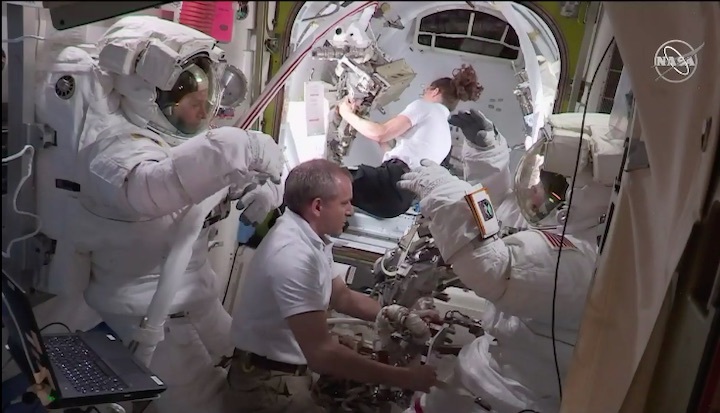8.11.2019
"This legislation will help grow our already burgeoning space economy."

A bipartisan quartet of United States senators has filed a new bill that sets out space policy for NASA over the coming decade. The new authorizing legislation is largely consistent with much of NASA's present activities, but it differs from White House policy in some key respects.
Most notably, the legislation calls for NASA to support the International Space Station through 2030. The Trump administration has sought to commercialize space stations in low Earth orbit by 2025, perhaps by becoming a customer on a privately operated International Space Station or by supporting the development of smaller, private labs.
"By extending the ISS through 2030, this legislation will help grow our already burgeoning space economy, fortifying the United States' leadership in space, increasing American competitiveness around the world, and creating more jobs and opportunity here at home," said Sen. Ted Cruz, a Texas Republican who chairs a subcommittee on space and aviation, in a news release.
Cruz was joined by three other senators in introducing the NASA Authorization Act of 2019: the subcommittee's ranking member, Kyrsten Sinema (D-Ariz.), as well as Sens. Roger Wicker (R-Miss.) and Maria Cantwell (D-Wash.), who are chairman and ranking member of the Senate Committee on Commerce, Science, and Transportation, respectively.
The new legislation follows the NASA Transition Authorization Act of 2017, which Cruz also led and which President Trump signed into law in March 2017. However, almost immediately after that bill became a law, Cruz characterized it as an interim measure to steady NASA through the presidential transition. The new bill is intended as a more expansive view of space policy, and it encompasses the Trump administration's Artemis Program to land humans on the Moon.
Support for Artemis
Although the 2019 authorization legislation does not mention a 2024 Moon landing, it calls for NASA to "collaborate with commercial and international partners to establish sustainable lunar exploration by 2028."
With this language, the bill appears to be agnostic on the 2024 landing date—it offers neither an endorsement or non-endorsement. Rather, the goal is to make clear that Congress desires a sustainable Moon presence. "We don't want a rerun of the Apollo program," a legislative source said.
This is notable because while Vice President Mike Pence has talked about a lunar base, some officials within NASA have adopted a touch-and-go strategy toward the Moon, as if it were a box to be checked on the way to Mars. (They have been emboldened by President Trump, who seems more interested in Mars than the Moon). The new authorization bill, instead, says the Moon should play an important role in preparing NASA for its overall strategy of sending humans to Mars.
The new legislation also addresses a number of other areas of spaceflight policy. For example, it requires that the United States maintain a continuous human presence in low Earth orbit through and beyond the useful life of the ISS; it supports NASA's efforts to develop next generation spacesuits; and it says the agency should fully leverage private sector investment to bolster human space exploration.
